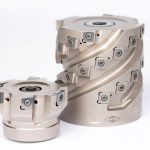Uni-World acquires Drake Manufacturing
Uni-World acquires Drake Manufacturing
New York equity firm Uni-World Capital LP has acquired CNC machine tool builder Drake Manufacturing Services Co., Warren, Ohio.
New York equity firm Uni-World Capital LP has acquired CNC machine tool builder Drake Manufacturing Services Co., Warren, Ohio.
"Drake has been growing at a rapid pace with expanding international reach since 2008," said Uni-World Managing Partner Christopher P. Fuller. "We are confident that this trend will continue and we see new markets both in the United States and overseas."
In addition to providing capital, Uni-World and its advisory board will provide strategic and operational advice to Drake.
"Drake is at an exciting point in its 42-year history and this new equity partnership will both sustain and increase our growth trajectory," said James Vosmik, president of Drake. "We are looking forward to working with Uni-World and its advisory board to build on our position as a leading manufacturer of precision CNC machine tools for the U.S. and export markets."
Drake was founded in 1972 as a manufacturer of specialty machinery. In 2006, the company began focusing on machines and systems for threading, according to the company. Under the terms of the agreement, Drake's senior management will be significant equity owners in the company and remain in their current positions, and the company will continue to be based in Warren.
League Park Advisors, Cleveland, served as exclusive investment banker to Drake.





